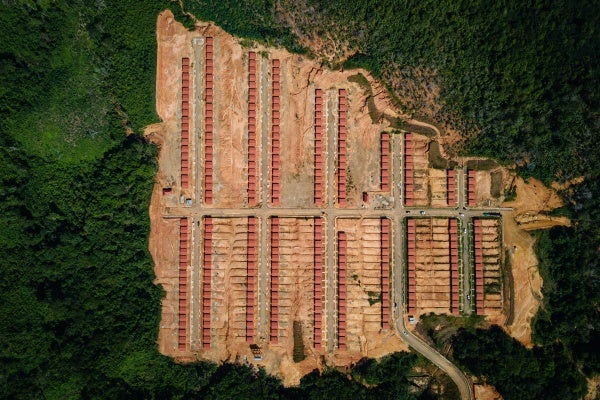Lea la versión en español
Saturday marks the second anniversary of Russia’s atrocity-ridden invasion and occupation of Ukraine.
Well, not exactly, of course, because Russia’s violent assault on its neighbor began nearly a decade ago, complete with war crimes, including torture by the Kremlin’s proxy forces in the east, and persecution of people in occupied Crimea right from the start, in 2014.
But February 24, 2022 – the start of what’s often called Russia’s “full-scale invasion of Ukraine” – moved the Kremlin’s mass violence to a new level. As atrocities multiplied, millions fled their homes and millions sought safety abroad, in “the world’s fastest-growing displacement crisis since the Second World War.”
A full list of Russian atrocities over the past two years would fill a library. Still, it’s worth naming at least few here to mark the terror and torment ordinary Ukrainians have been facing.
The Russian military has been bombing and shelling civilian centers and civilian infrastructure mercilessly. This was evident on day one of their “full-scale invasion,” when, among other horrors, a cluster munition struck just outside a hospital in Vuhledar, killing four civilians and injuring another 10, six of them healthcare workers.
Russia’s indiscriminate bombing has been well-documented in many cities since, including Chernihiv, Kharkiv, Kherson, Kramatorsk, Kremenchuk, Mariupol, Mykolaiv, and many, many others. Russian forces have also been repeatedly bombing Ukraine’s energy infrastructure with little clear purpose other than to terrorize civilians – in violation of the laws of war.
In Irpin, they even bombarded an intersection on a road civilians were using to flee the Russian army’s advance. In other places, Russian soldiers shot at those trying to escape, killing civilians. And for many more civilians, rather than let them flee to safety, the Russian military forcibly transferred them en masse to Russia and Russian-occupied areas of Ukraine – also a war crime.
In March 2022, Russian forces committed a string of atrocities during their occupation of Bucha, including summary executions, enforced disappearances, and torture. Such abuses are also well-documented in other areas that were under Russian occupation, such as in Izium, Kherson, Zaporizhzhia region, and elsewhere.
And there’s evidence of many other Russian war crimes during periods of occupation, like looting of civilians’ possessions and pillaging of artwork from museums, robbing Ukraine of its cultural heritage.
In short, area by area, the Russian military’s pattern has been: invade, occupy, torture, destroy. And after retreating from each area, they left behind abundant evidence of the crimes they committed.
The only encouraging thing to see over the last two years of Russia’s countless atrocities, has been how many governments around the world have been taking them seriously. They’ve come together quickly to support efforts for international justice, offering a model for how they could be and should be addressing such crimes elsewhere.
The International Criminal Court, already looking into serious crimes in Ukraine since the true start of this war nearly a decade ago, acted relatively swiftly to issue arrest warrants against Putin and another Russian official for one of the most heinous crimes of the war: Russia’s mass abduction of children in Ukraine.
Unfortunately, this laudable international response in Ukraine has not been proving the model as it should be. Many of the same governments that so vigorously backed international justice efforts in Ukraine have been failing to do so elsewhere, notably in Gaza.
With such situational ethics and double standards, these governments risk making international justice seem like an extension of geopolitics, undermining the concept of international justice generally and their own justice efforts in Ukraine specifically.
There must be justice for Russia’s crimes. The perpetrators must be held accountable. The countless victims and their families deserve it. The concept of human dignity generally – and the laws of war specifically – demand it.
And the same standards must be upheld everywhere.









